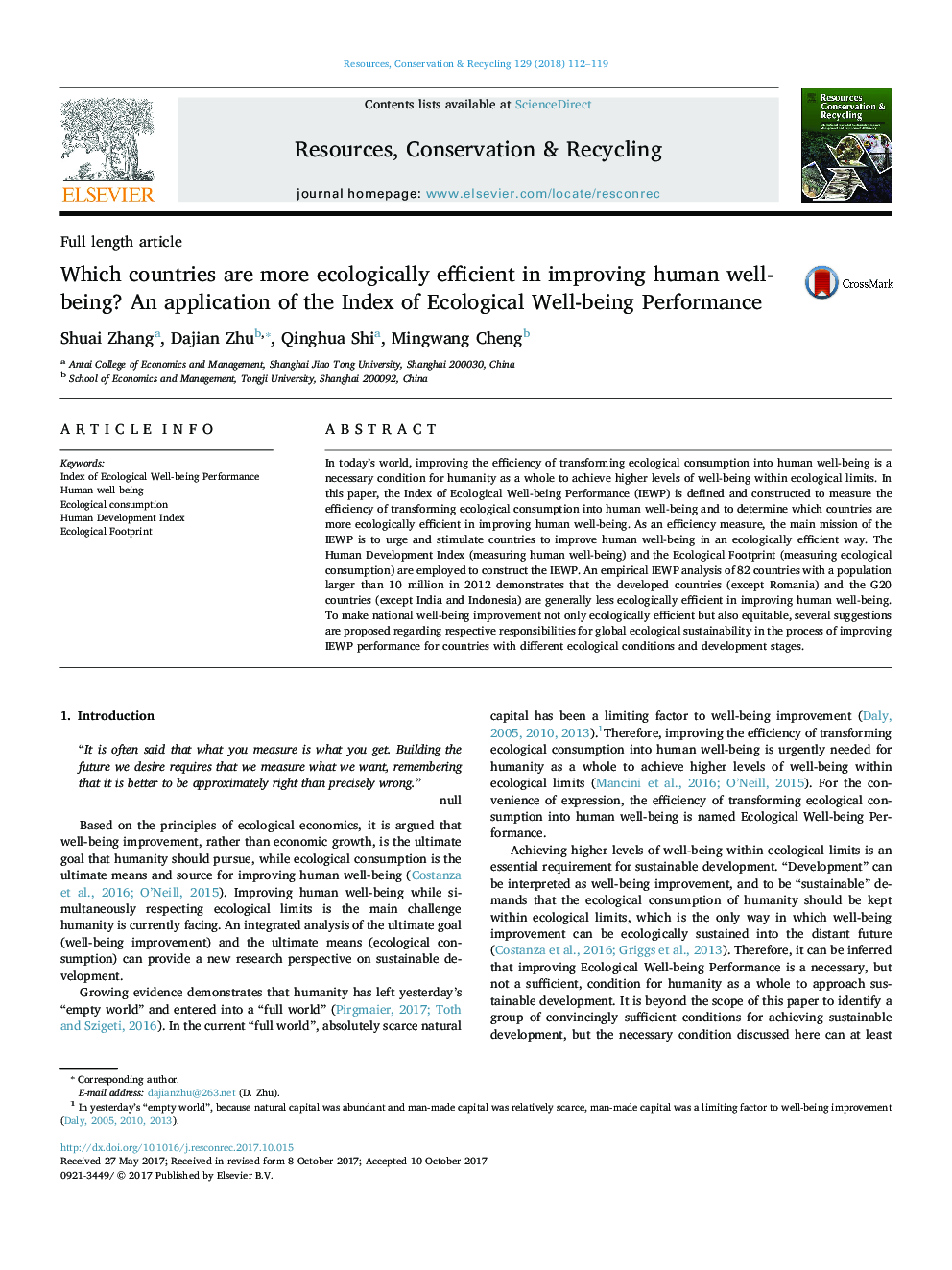| کد مقاله | کد نشریه | سال انتشار | مقاله انگلیسی | نسخه تمام متن |
|---|---|---|---|---|
| 7494499 | 1485663 | 2018 | 8 صفحه PDF | دانلود رایگان |
عنوان انگلیسی مقاله ISI
Which countries are more ecologically efficient in improving human well-being? An application of the Index of Ecological Well-being Performance
ترجمه فارسی عنوان
کدام کشورها از نظر اکولوژیکی در بهبود سلامت انسان کارآمدتر هستند؟ کاربرد شاخص عملکرد بوم شناختی
دانلود مقاله + سفارش ترجمه
دانلود مقاله ISI انگلیسی
رایگان برای ایرانیان
کلمات کلیدی
شاخص عملکرد سازگار با محیط زیست، رفاه بشری، مصرف اکولوژیک، شاخص توسعه انسانی، پس زمینه زیست محیطی،
موضوعات مرتبط
مهندسی و علوم پایه
مهندسی انرژی
انرژی های تجدید پذیر، توسعه پایدار و محیط زیست
چکیده انگلیسی
In today's world, improving the efficiency of transforming ecological consumption into human well-being is a necessary condition for humanity as a whole to achieve higher levels of well-being within ecological limits. In this paper, the Index of Ecological Well-being Performance (IEWP) is defined and constructed to measure the efficiency of transforming ecological consumption into human well-being and to determine which countries are more ecologically efficient in improving human well-being. As an efficiency measure, the main mission of the IEWP is to urge and stimulate countries to improve human well-being in an ecologically efficient way. The Human Development Index (measuring human well-being) and the Ecological Footprint (measuring ecological consumption) are employed to construct the IEWP. An empirical IEWP analysis of 82 countries with a population larger than 10 million in 2012 demonstrates that the developed countries (except Romania) and the G20 countries (except India and Indonesia) are generally less ecologically efficient in improving human well-being. To make national well-being improvement not only ecologically efficient but also equitable, several suggestions are proposed regarding respective responsibilities for global ecological sustainability in the process of improving IEWP performance for countries with different ecological conditions and development stages.
ناشر
Database: Elsevier - ScienceDirect (ساینس دایرکت)
Journal: Resources, Conservation and Recycling - Volume 129, February 2018, Pages 112-119
Journal: Resources, Conservation and Recycling - Volume 129, February 2018, Pages 112-119
نویسندگان
Shuai Zhang, Dajian Zhu, Qinghua Shi, Mingwang Cheng,
